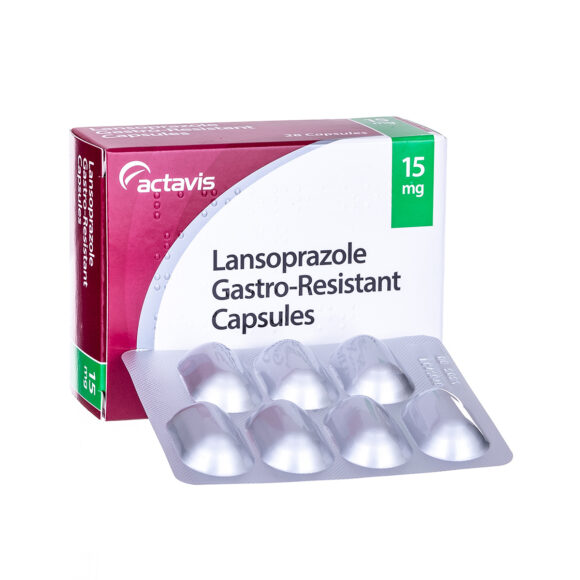Subtotal £0.00
- Phone:+44 7490 342983
- Email:info@micjeffonpharmacy.com
- United Kingdom

Lansoprazole is a medication that lowers the amount of acid your stomach makes. It is commonly prescribed for acid reflux, indigestion, heartburn and stomach ulcers.
Lansoprazole 30mg
Lansoprazole 15mg
INDICATE WHEN CHECKING OUT THE GRAM YOU WANT.
Availability: In Stock
Lansoprazole 30mg is part of a group of medications called Proton Pump Inhibitors (PPIs). PPIs work by stopping the cells that line the stomach from producing too much acid. This helps to prevent ulcers from forming. If damage or an ulcer is already present, lansoprazole assists with the healing process.
In some people, acid reflux occurs when acid escapes from the stomach up into the esophagus (food pipe). Acid reflux leads to heartburn, a painful burning sensation in the center of the chest. It can also leave an unpleasant taste in your mouth. As lansoprazole reduces the amount of acid being produced, it can also help to prevent acid reflux.
Lansoprazole is available as a tablet or a capsule. A liquid is available for children or those who have difficulty swallowing.
Lansoprazole 30mg is usually taken once a day in the morning. It is best to take it 30 minutes before a meal or snack. This is because food can slow down the absorption of lansoprazole.
The tablets should be swallowed whole with water or juice. The capsules can be opened and mixed into a little water or juice or can be stirred into soft foods including yogurt or fruit puree.
The usual dose of lansoprazole 30mg may depend on your reasons for taking it, and the severity of your symptoms.
For indigestion, acid reflux, and stomach ulcers the usual dose is 15mg to 30mg every day.
Most people who take lansoprazole 30mg will not notice any side effects. However, the most common side effects include:
These side effects will often settle down, but you can speak to a healthcare professional if they bother you.
Occasionally, more serious side effects can occur. You should call a doctor straight away if you experience:
If you have a severe allergic reaction (anaphylaxis) including breathlessness, or lip or tongue swelling, call 999 immediately.